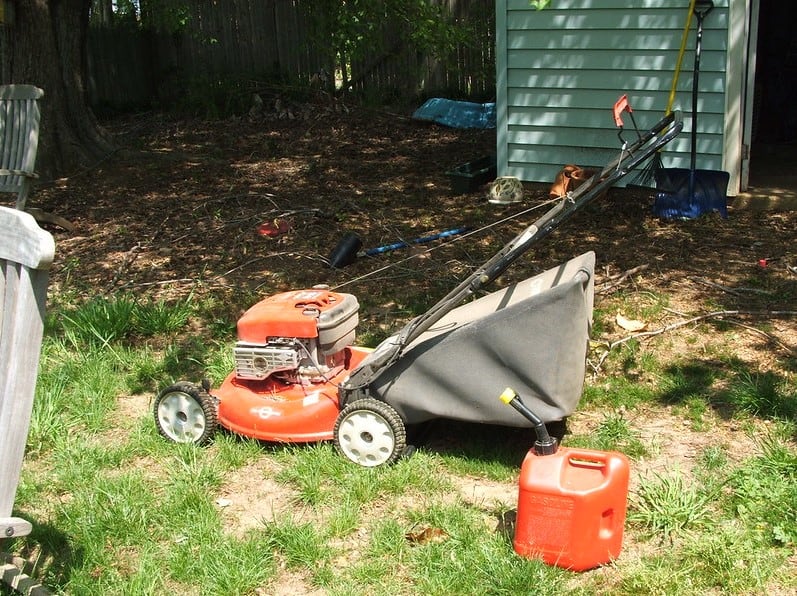Have a good day!
Even if you maintain your lawn mower regularly, a common problem that can arise is the presence of bad gasses in the fuel system.
Bad gas is gasoline that has been degraded or contaminated, leading to many problems affecting lawn mower performance.
In this guide, we’ll explore the symptoms of bad gas in a lawn mower and discuss how to fix it. Let’s dive into the details!
Contents
Symptoms Of Bad Gas In A Lawn Mower
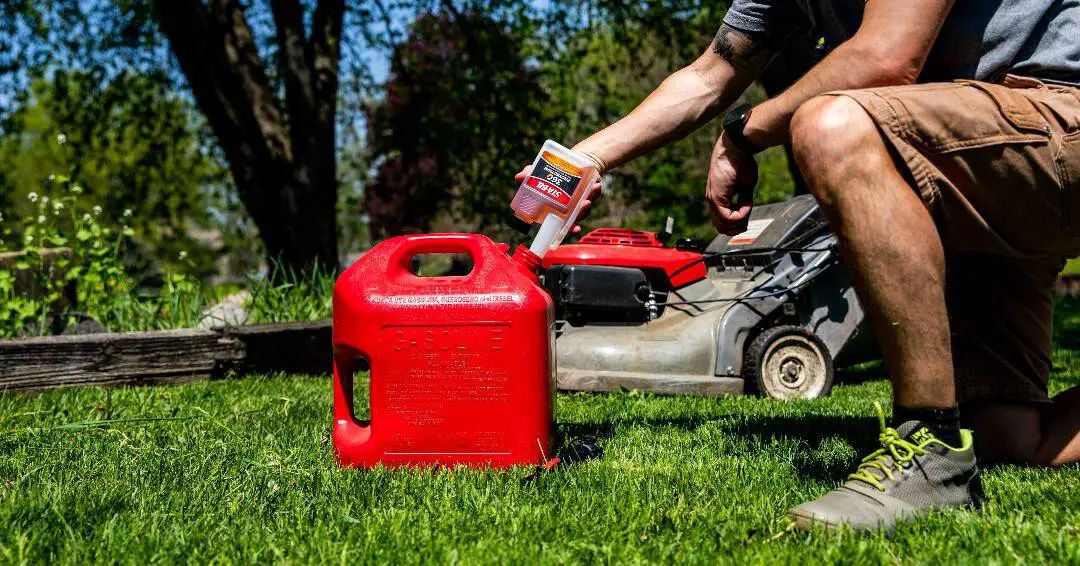
In this section, we will learn about the signs that your lawn mower has bad gas. Let’s dive in!
How Do You Know If Your Mower Has Bad Gas?
Gasoline is a fuel that helps power a lawn mower. But sometimes this machine can have bad gas with some of the following symptoms:
- Difficult to start: If your lawn mower has this issue, you may have to pull the starter cord several times, or you may not be able to start at all.
- Stalled: Bad gas can cause the lawn mower to stop working while you use it. So it may suddenly turn off or run irregularly.
- Running hard: When the gas is old, the lawn mower engine can run sluggishly. Then it may make strange noises or vibrate more than usual.
- Poor performance: Bad gas can cause the lawn mower to operate poorly, resulting in proper mowing or power outages while mowing.
If you notice these signs of bad gas in a lawn mower, you should take the solutions we mention in the following sections of this article.
Will Bad Gas Ruin A Lawn Mower?
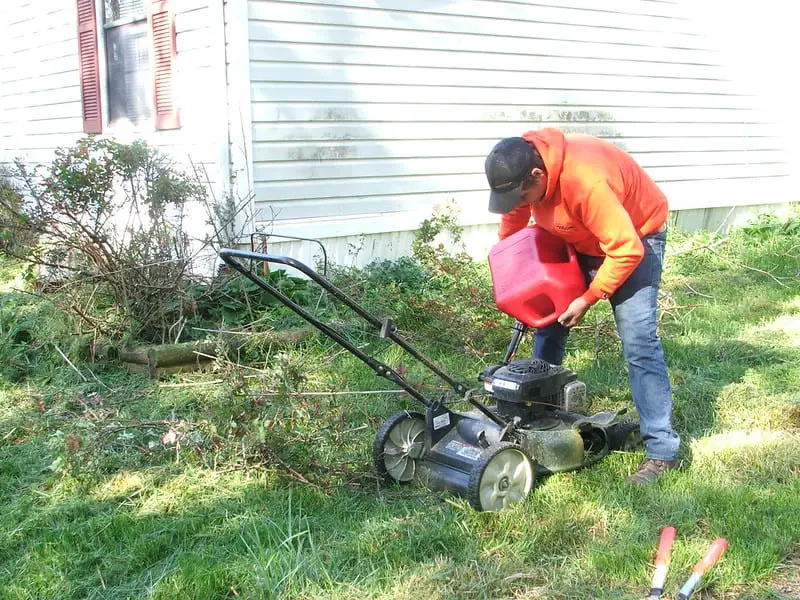
The answer is yes. It will more or less adversely affect your machine, specifically:
It can clog the fuel system.
The fuel system is like a path to carry the gasoline from the fuel tank to the engine. Old gas can leave behind dirt and gunk that can block this path when you use it.
Then, the gasoline can’t flow properly to the engine. This issue can make the lawn mower hard to start, run rough, or even stop working altogether.
It can damage the engine’s internal parts.
The old gas deposits can build up on critical engine parts such as fuel injectors, carburetors, or valves.
This gas can contain moisture or water, especially if stored improperly. When water mixes with gasoline, it can lead to corrosion and rust inside the engine.
As a result, it can damage critical components such as the fuel tank, fuel lines, and the engine.
It can impact the spark plugs.
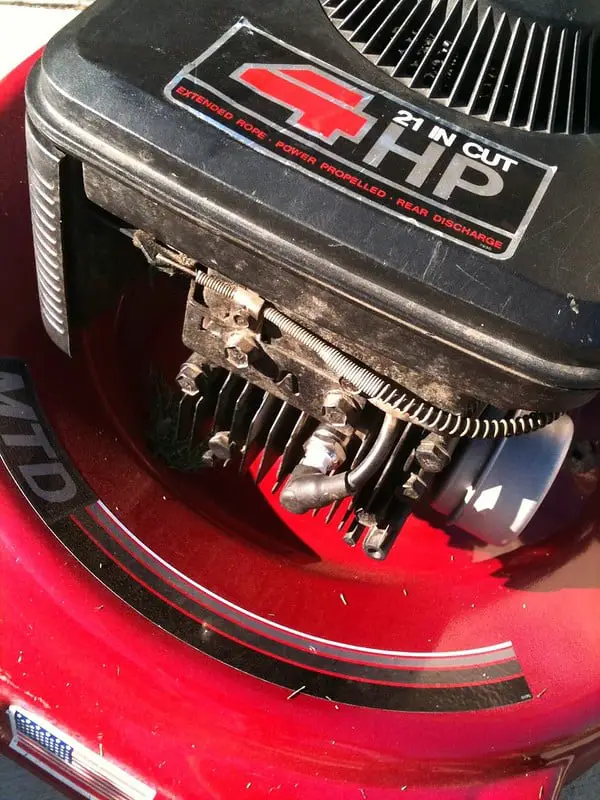
The spark plug is an important part that creates the spark to ignite the gasoline-air mixture inside the engine, helping the lawn mower to start and operate smoothly. But bad gasses can cause some problems with these parts.
First, bad gas can leave deposits on the spark plugs. These deposits can build up over time and cause spark plugs to become dirty or clogged.
Second, poor gasoline can also cause spark plugs to wear out faster. Impurities in the gas can lead to increased corrosion and erosion of the spark plug electrodes, which produce sparks. Hence, this can lead to reduced spark intensity and reduced engine performance.
How Long Can You Store Gas?
Regular gasoline, the most common, can deteriorate after about 3 to 6 months of storage. So to keep the gas from spoiling, it is best to use it within two months of purchase.
If you have to store gas for longer, try to use a gas stabilizer – a chemical that can keep the gas fresh. It can extend the storage time by several months.
Remember to use fresh, clean gas for your lawn mower to keep it running smoothly and avoid any problems caused by bad gas. Also, you can use eater gas for your lawn mower.
What To Do If Your Lawn Mower Has Bad Gas?
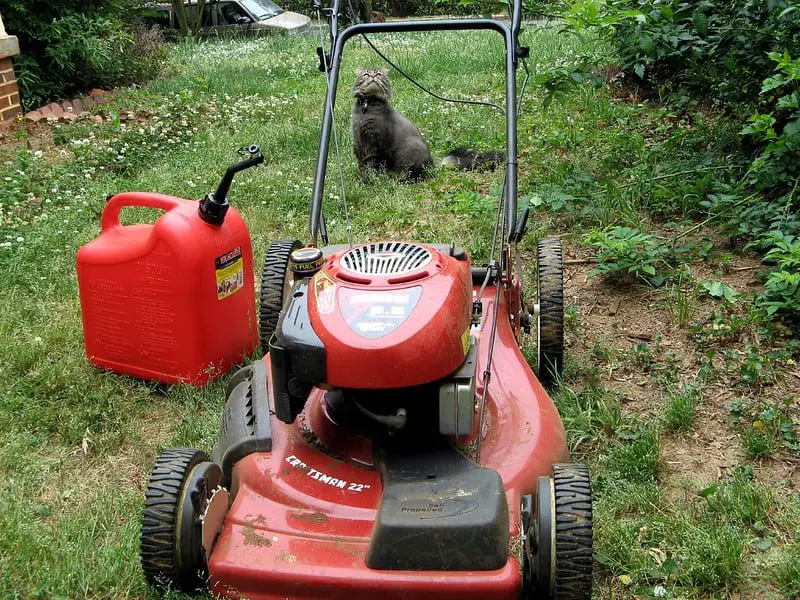
Once you know your lawn mower has bad gas, all you need to do is follow our instructions below!
Drain The Old Gas
When a lawn mower has old gas, it’s vital to drain the old fuel from the tank. Draining old gas means removing it from the tank so that you can fill the new one in it.
To do this, use a siphon pump or disconnect the fuel line. After exhausting the old gas, it is essential to dispose of it according to local regulations.
Replace The Fuel Filter
The fuel filter is a small device that removes impurities and debris from the engine. As mentioned, bad gas causes the fuel filter to become clogged or dirty, hindering proper fuel flow.
By replacing the fuel filter, you will ensure that only clean fuel reaches the engine, improving engine performance and preventing further damage.
But follow the manufacturer’s instructions and choose the correct fuel filter for your lawn mower model. Regularly replacing the fuel filter helps maintain the efficiency and life of your lawn mower engine.
Clean The Carburetor
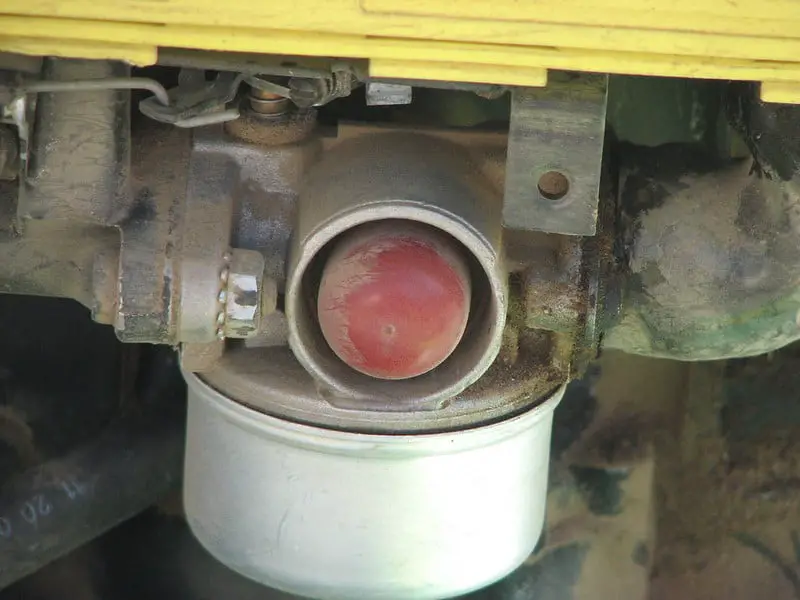
The carburetor is responsible for mixing fuel and air to create a mixture that powers the engine. To clean this part:
1/ Remove it from the mower.
2/ Disassemble it.
3/ Use a carburetor cleaner to remove any build-up.
After that, put it back in place and see if your lawn mower is back to normal.
Consult A Professional
If you’ve tried all the above tips and your mower still has this issue, we recommend consulting a professional.
A specialized technician in lawn mower repairs can provide expert advice and assistance. Also, they have the knowledge and experience to diagnose and fix complex problems.
Consulting a professional ensures the issue is solved, reducing the risk of further damage and maximizing the chances of getting your lawn mower back in working condition.
Yet, remember to reach out to qualified professionals who can help you with your specific lawn mower model.
FAQs
Is It Ok To Mix Old Gas With New Gas In A Lawn Mower?
It is generally not recommended. Old gas may have degraded and contain impurities that can affect the mower’s performance. It’s best to use fresh, clean gas for optimal operation.
Is 6-Month-Old Gas Still Good?
No. Six-month-old gas may still be usable, but its quality can deteriorate. We recommend using gas within three months for small engines like those in mowers.
How Do You Test For Bad Gasoline?
You can check its appearance and smell. Bad gas may appear cloudy or have a strange color. It can also emit a sour or foul odor. Also, it may cause engine problems such as difficulty starting, rough running, or stalling.
Conclusion
Being aware of the symptoms of bad gas in a lawn mower and knowing how to fix the problem is crucial to maintaining optimal performance and extending the life of your equipment. This way, you can quickly resolve it before it gets worse.
Remember, storing fuel properly, using fuel stabilizers, and performing routine maintenance will help reduce the likelihood of future gas problems.
Happy mowing!

